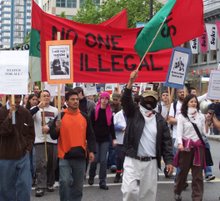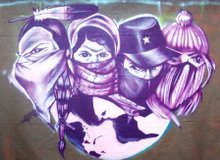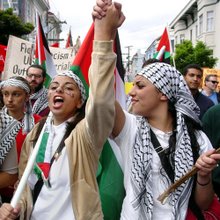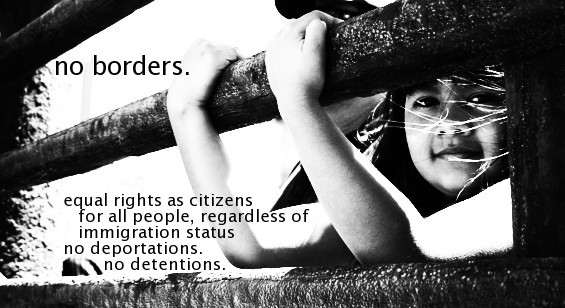
Canada's Secret Trial Detainees on Hunger Strike at Guantanamo Bay North,Kingston, Ontario .
Denial of Medical Treatment, Lack of Personal Safety Among Key Issues
FRIDAY, DECEMBER 15, 2006 -- For the second time this year, three men held at the Kingston Immigration Holding Centre (KIHC) -- a $3.2 million facility within Millhaven Penitentiary for security certificate detainees-- have gone on hunger strike to protest their conditions of detention. As of today, December 15, Mohammad Mahjoub has been without food for 20 days, and Hassan Almrei and Mahmoud Jaballah for nine days. Most pressing among many demands is immediate medical treatment for Mr.Mahjoub, who has been denied access to medical care for hepatitis C and high blood pressure since September.
The men are also demanding that a supervisor (not a guard) escort them between the "living unit" and the administration building (where they receive visitors and exercise). The men are concerned about the potential for mistreatment at the hands of some (not all) guards at the facility, as well as about the fact that false allegations have been made against the men by some (but not all) guards at the facility. The presence of a supervisor is the only way they have to guarantee their safety, and there is no reason why one cannot be available during daylight hours (the facility, which imprisons three men, is top-heavy with staff: two directors, two secretaries, seven supervisors, 12 guards).
The detainees also feel that one way of ending the negative way in which they are often treated is to replace Corrections Service Canada guards with individuals from the Canadian Border Services Agency. KIHC officials claim Mr. Mahjoub can get his medication if he goes to the administration building, but he refuses to go without a supervisory escort. Medical personnel often come to the "living unit," but they are not bringing his medication there. Because Mr. Mahjoub fears for his safety andrefuses to go to the administration building without an escort, he is being punished, and his health is subsequently impaired. Such bureaucratic pettiness at KIHC is something out of a Soviet Gulag, not a 21st century democracy.
OTHER DEMANDS
- That the men have access to media, as they did when detained in Toronto. Currently, all media need to have prior approval, and interviews cannot be conducted in private. The men are justifiably uncomfortable having guards sit-in on interviews. They are also demanding that more time be granted to media interviews. Currently, one-hour blocs are available, but by the time media go through security and set up cameras, there is very little time to conduct proper interviews.
- That an independent body or neutral mediator be appointed to deal with the many problems that continue to plague the KIHC. A translator must also be provided for any meeting where complaints are discussed and to assist with the documentation of written complaints. Currently, the men must submit lengthy written complaints (and all have limited written and spoken English) that are almost always dismissed by staff at KIHC, with no route of appeal. The men currently have no one to appeal to who would play the role of independent ombudsperson.
- Eliminate daily head counts. Given that there are only three men in the tiny unit, and they are constantly monitored, the men find that being told to stop throughout the day to stand and be counted is humiliating and unnecessary.
- That the men be allowed to use phone cards to call family overseas. The KIHC is proposing that the men call through the most expensive plan available, which would be billed to their Canadian family (all of whom are on social assistance). Since calls are monitored, it makes no sense why a far less expensive calling card cannot be used.
- That the men be granted the same rights as other federal inmates: access to a library, educational programs, and trailer visits with loved ones where they can stay together for three days every month.
- That the men be permitted to leave their cells before dawn to bathe and pray, as required by their faith.
- The men are not given a choice about what to have in their canteen, and the prices are triple what they are outside the facility. In the federal jail next door to KIHC, inmates choose what is in their canteen, and prices are lower.






